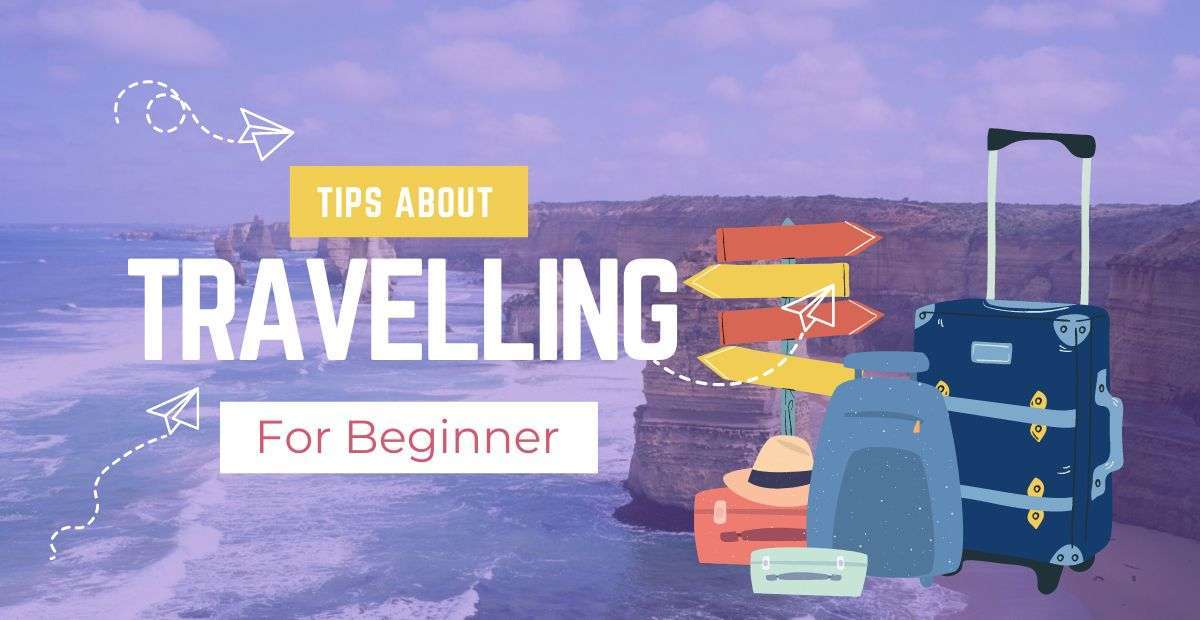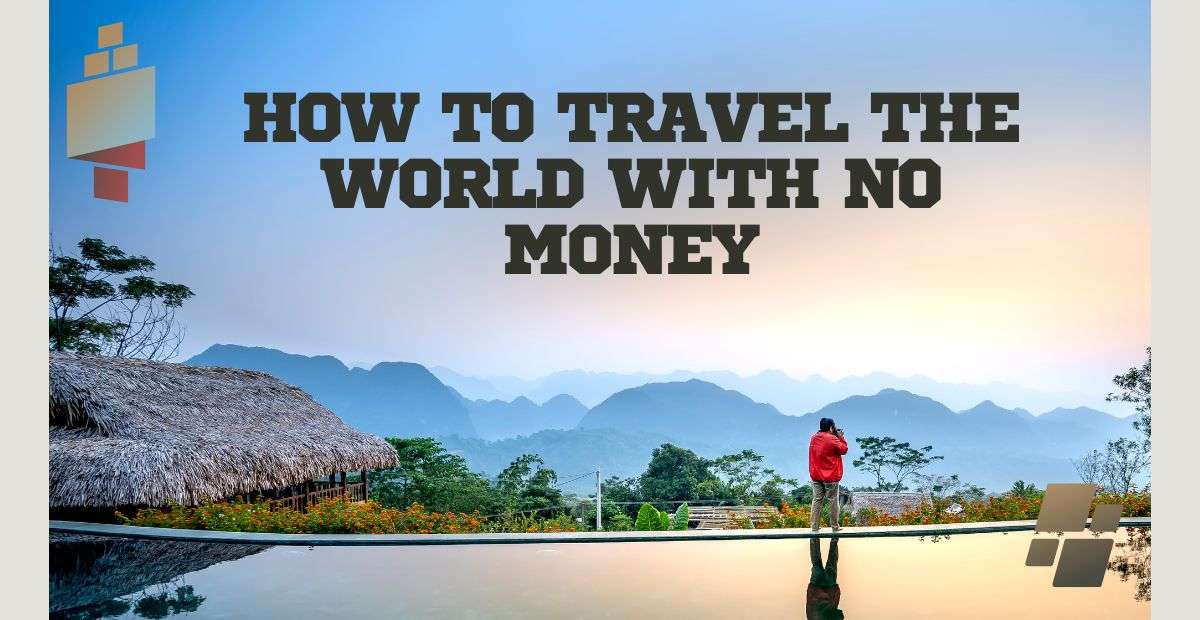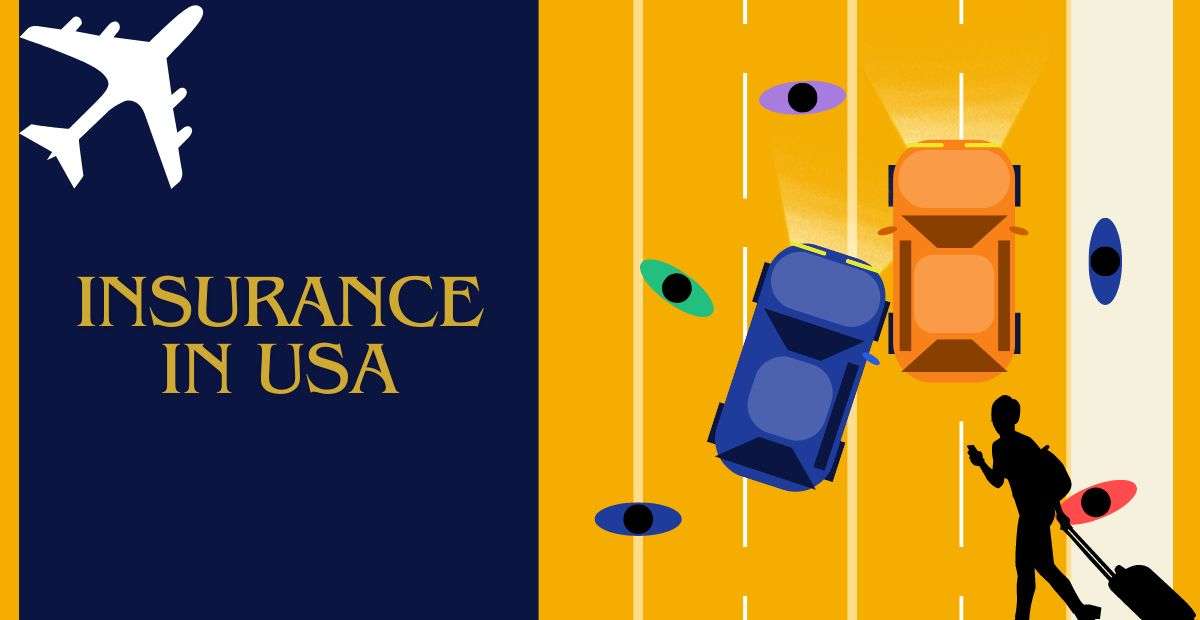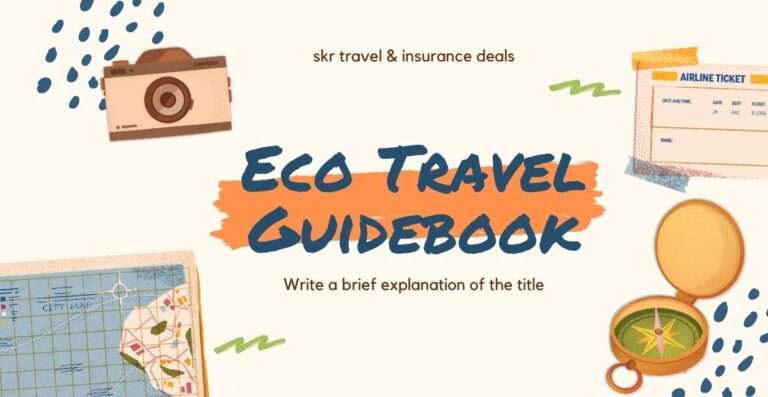Wondering How To Travel The World With No Money? Read This!


Traveling the world is a dream for
many, but the cost can be a significant barrier. However, it is possible to
explore the globe without a hefty budget. By using creative strategies, embracing
a frugal lifestyle, and leveraging available resources, you can embark on your
adventure. This guide will provide you with practical tips and insights on how to travel the world with no money.
1. Embrace the
Travel Mindset
Traveling the world with no money
requires a shift in mindset. Embrace minimalism, adaptability, and a
willingness to step out of your comfort zone. By being open to new experiences
and challenges, you’ll find countless opportunities to travel for free or at a
minimal cost.
2.
Volunteer and Work Exchanges
Volunteering and work exchanges are excellent ways to travel
without money. Websites like Workaway, WWOOF (World Wide Opportunities on
Organic Farms), and HelpX connect travelers with hosts who offer food and
accommodation in exchange for work. These platforms provide a range of
opportunities, from farming and gardening to teaching and hostel work.
Volunteering not only saves money but also allows you to immerse yourself in the
local culture and make meaningful connections.
3.
Couchsurfing and Homestays
Accommodation can be one of the most significant expenses while
traveling. Couchsurfing and homestays offer a free alternative.
Couchsurfing.org connects travelers with hosts who offer free accommodation in
their homes. It’s a great way to meet locals, learn about their culture, and
save on lodging costs. Similarly, websites like Homestay.com provide
opportunities to stay with local families at a lower cost than traditional hotels.
4.
Hitchhiking and Ridesharing
Transportation costs can add up quickly, but hitchhiking and
ridesharing can help you get around for free or at a minimal cost. Hitchhiking
requires patience and a bit of luck, but it’s an adventure in itself. Always
prioritize safety by choosing well-populated areas to hitchhike and informing
someone of your plans. Ridesharing platforms like BlaBlaCar allow you to share
rides with drivers heading in the same direction, splitting the cost of gas and
making new friends along the way.
5.
Eating on a Budget
Eating on a budget is essential when traveling with no money. Cook
your own meals whenever possible to save money. Shopping at local markets and
grocery stores is often cheaper than eating out. If you do eat out, opt for
street food or local eateries, which are usually more affordable and provide a
taste of authentic cuisine. Additionally, consider participating in community
meals or food-sharing initiatives, which can be a great way to meet people and
enjoy free or low-cost meals.
6.
Free Activities and Attractions
Many destinations offer free activities and attractions that
allow you to explore without spending money. Museums, parks, festivals, and
historical sites often have free entry days or offer discounts. Research the
free attractions in your destination before you go. Walking tours are another
fantastic way to explore a city without spending a dime, and they provide
insight into the local history and culture.
7.
Utilizing Travel Rewards and Points
If you have a credit card that offers travel rewards or points,
make the most of them. Accumulated points can be redeemed for flights,
accommodation, or other travel-related expenses. Many travel hacking
communities share tips on maximizing rewards and finding the best deals. By
strategically using your points, you can significantly reduce your travel
costs.
8.
Connecting with Locals
Connecting with locals can enhance your travel experience and
provide opportunities for free or low-cost accommodation, meals, and
activities. Websites like Meetup and Facebook groups allow you to find local
events and meetups. Engaging with locals can lead to unique experiences, such
as being invited to stay with a family, joining community events, or getting
insider tips on free activities.
9.
Travel Hacking Tips
Travel hacking involves using unconventional methods to save
money while traveling. Some tips include:
- Travel during
off-peak seasons: Flights and
accommodation are cheaper during these times.
- Use budget
airlines: They offer lower fares, especially for
short-haul flights.
- Take overnight
buses or trains: Save on
accommodation by traveling overnight.
- Join loyalty
programs: Hotels, airlines, and other
travel-related companies offer programs that provide discounts and
rewards.
- Look for travel
grants or scholarships: Some
organizations offer funding for travelers with specific goals or projects.
10.
Conclusion
Traveling the world with no money is not only possible but can
be incredibly rewarding. By embracing a frugal mindset, utilizing free
resources, and being open to new experiences, you can explore the globe without
breaking the bank. Remember, the most memorable travel experiences often come
from the people you meet and the adventures you undertake, not from the amount
of money you spend. So pack your bags, hit the road, and discover how to travel the world with no money.
The Best Way To Insurance


Navigating the world of insurance in the USA can be daunting. With so many options and policies to choose from, understanding what you need and how to get it is crucial. This guide will help you understand the best way to approach insurance, ensuring you make informed decisions that protect your assets, health, and future.
Introduction to Insurance in the USA
Insurance in the USA is a contract between an individual and an insurance company. The individual pays premiums, and in return, the insurance company provides financial protection against losses or damages. Insurance is essential for mitigating risk and ensuring financial stability in unexpected events.
Types of Insurance
Health Insurance
Health insurance is crucial in the USA due to the high cost of medical care. It covers medical expenses, including doctor visits, hospital stays, prescription drugs, and preventive care. There are several types of health insurance plans:
- Employer-sponsored plans: These are provided by employers and often cover a significant portion of the premiums.
- Individual plans:
Purchased by individuals directly from insurance companies or through the Health Insurance Marketplace. - Government programs:
Medicaid and Medicare provide coverage for low-income individuals and seniors.
Auto Insurance
Auto insurance is mandatory in most states in the USA. It provides financial protection against accidents, theft, and damages to your vehicle. There are different types of auto insurance coverage:
- Liability coverage:
Pays for damages and injuries you cause to others. - Collision coverage:
Covers damages to your vehicle from collisions. - Comprehensive coverage: Covers non-collision-related damages like theft, vandalism, and natural disasters.
- Uninsured/underinsured motorist coverage: Protects you if the other driver lacks adequate insurance.
Homeowners Insurance
Homeowners insurance protects your home and personal property against damages or loss. It also provides liability coverage for accidents that occur on your property. Homeowners insurance typically covers:
- Dwelling coverage:
Protects the structure of your home. - Personal property coverage: Covers your belongings inside the home.
- Liability coverage:
Provides protection if someone is injured on your property. - Additional living expenses: Covers temporary housing if your home is uninhabitable
due to a covered event.
Life Insurance
Life insurance provides financial protection for your loved ones in the event of your death. There are two main types of life insurance:
- Term life insurance:
Provides coverage for a specified term, such as 10, 20, or 30 years. It
pays a death benefit if the policyholder dies during the term. - Whole life insurance:
Offers lifelong coverage and includes an investment component called cash
value. Premiums are higher, but it provides a death benefit and an
opportunity to build savings.
Renters Insurance
Renters insurance is designed for tenants. It protects personal belongings and provides liability coverage. It typically covers:
- Personal property:
Protects your belongings against theft, fire, and other covered events. - Liability:
Covers legal expenses if someone is injured in your rental unit. - Additional living expenses: Covers costs if your rental becomes uninhabitable.
Travel Insurance
Travel insurance covers unexpected events that can occur while traveling. It includes:
- Trip cancellation:
Reimburses you for prepaid travel expenses if you need to cancel your
trip. - Medical coverage:
Covers medical expenses if you get sick or injured while traveling. - Lost luggage:
Reimburses you for lost or delayed luggage. - Travel delays:
Covers additional expenses due to travel delays.
Factors to Consider When Choosing Insurance
When choosing insurance in the USA, consider the following factors:
- Coverage needs:
Assess your needs and choose coverage that provides adequate protection. - Budget:
Determine how much you can afford to pay in premiums and out-of-pocket expenses. - Reputation of the insurer: Research the insurance company’s financial stability and customer service reputation.
- Policy terms and conditions: Read the fine print to understand what is covered and what is excluded.
- Discounts:
Look for available discounts, such as bundling multiple policies or having a good driving record.
Tips for Getting the Best Insurance Rates
- Compare quotes:
Obtain quotes from multiple insurance companies to find the best rates. - Bundle policies:
Many insurers offer discounts if you bundle multiple policies, such as auto
and home insurance. - Maintain a good credit score:A higher credit score can result in lower insurance
- Increase deductibles:
Opting for a higher deductible can lower your premiums, but make sure you
can afford the out-of-pocket costs. - Take advantage of discounts:Inquire about discounts for safe driving, installing
security systems, or being a loyal customer. - Review your policy annually:Regularly review your insurance policies to ensure
they still meet your needs and make adjustments as necessary.
Frequently Asked Questions (FAQs)
Why is health insurance so important in the USA?
Health insurance is crucial because medical care in the USA is expensive. Without insurance, even a minor illness or injury can lead to significant financial hardship.
What is the minimum auto insurance coverage required in most states?
Most states require liability coverage, which includes bodily injury and property damage liability. The minimum limits vary by state.
How can I determine how much homeowners insurance I need?
Consider the cost to rebuild your home, replace your belongings, and cover liability risks. An insurance agent can help you assess your needs.
Is term life insurance or whole life insurance better?
It depends on your needs. Term life insurance is more affordable and suitable for temporary coverage, while whole life insurance offers lifelong protection and a savings component.
Do I really need renters insurance?
Renters insurance is highly recommended as it protects your personal belongings and provides liability coverage. Landlords’ insurance typically doesn’t cover tenants’ belongings.
Can travel insurance be purchased for individual trips?
Yes, travel insurance can be purchased for individual trips or as an annual policy that covers multiple trips.
Conclusion
Understanding the best way to navigate insurance in the USA involves knowing the different types of coverage, assessing your needs, and shopping around for the best rates. By following the tips outlined in this guide, you can find the right insurance policies that provide the protection you need without breaking the bank. Remember, the key to successful insurance in the USA is being informed, proactive, and regularly reviewing your coverage to ensure it meets your evolving needs.








